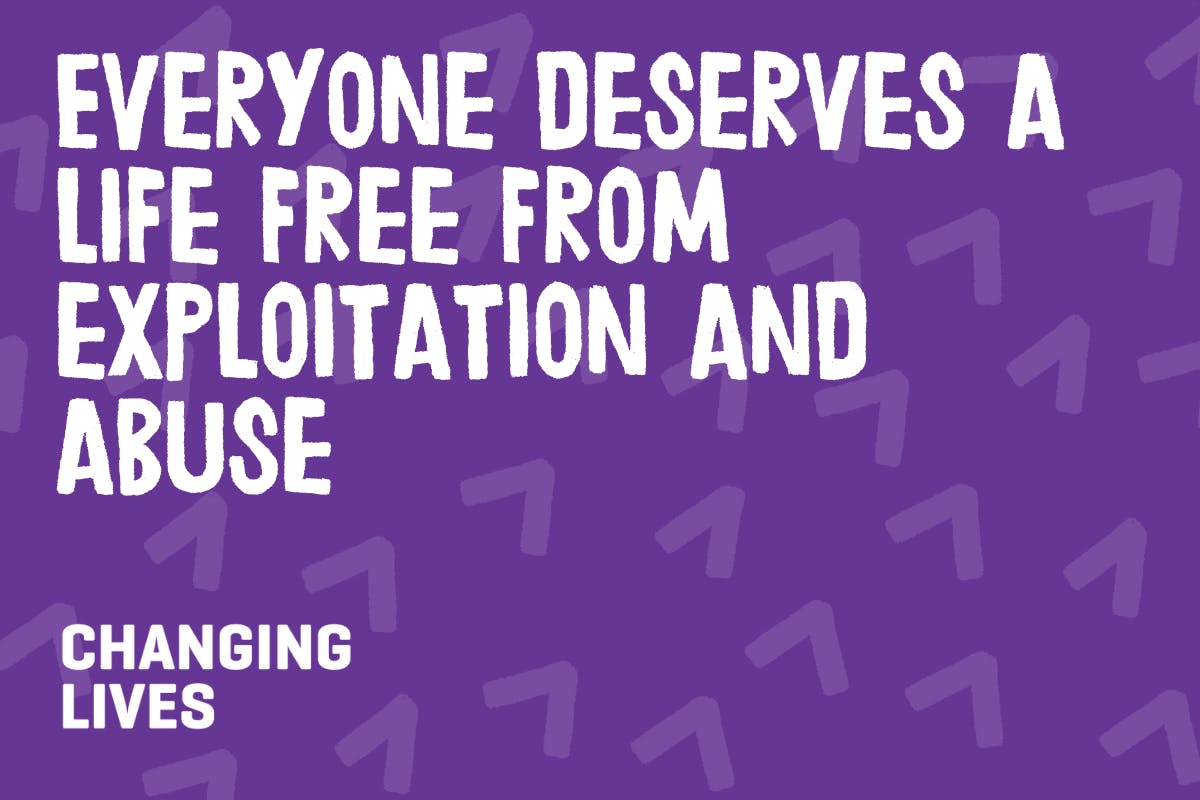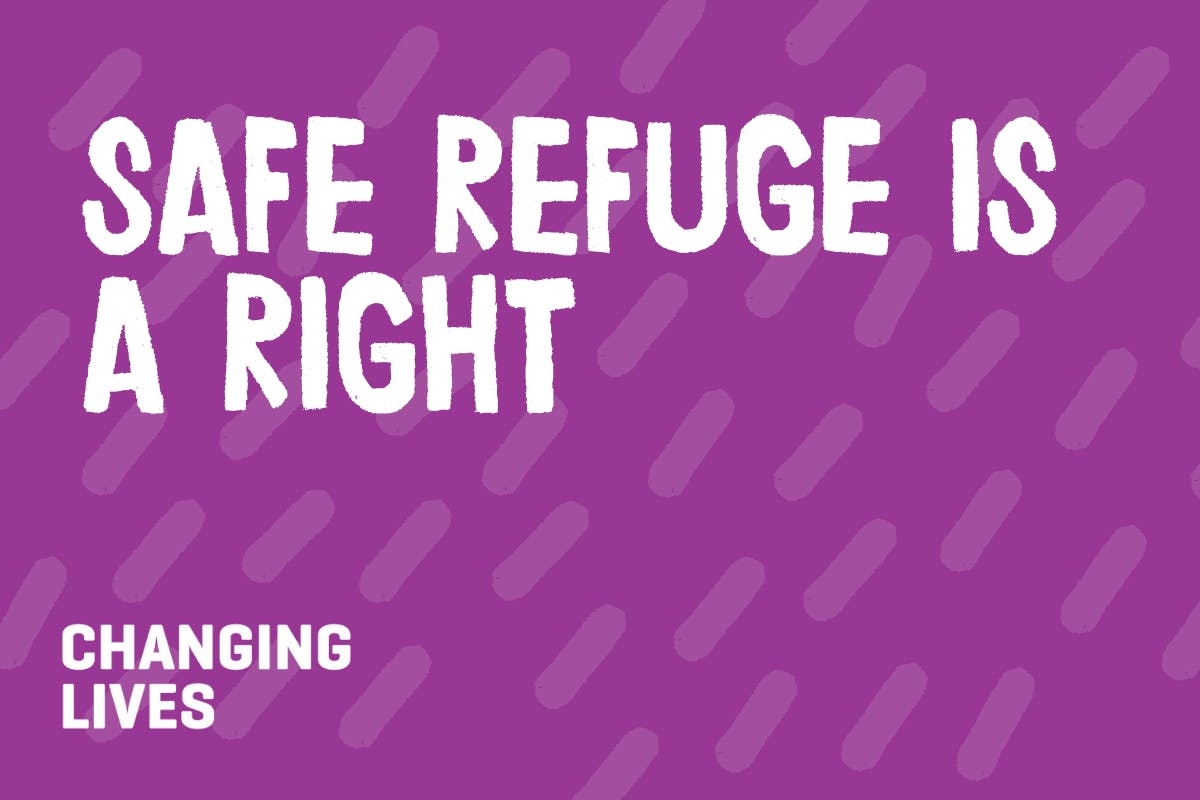Today is International Day to End Violence Against Sex Workers (IDEVASW), the 17th December 2021.
The day calls attention to hate crimes committed against sex workers worldwide, as well as the need to remove the social stigma and discrimination that have contributed to violence against sex workers.
This is the 13th year our sex work projects across the country have held local events for IDEVASW, in different reflective spaces’ church services and memorials, and red umbrella marches in the towns and cities where we work, to stand in solidarity with the sex working community. The 17th of December is one of the most important days in the year for our sex work projects; GAP MAP in Northumbria, Amber in Doncaster, Iris in Wolverhampton and Walsall, Red Umbrella in Merseyside and a developing sex work project as part of our Women’s Wellness Centre in York.
We share this day with other specialist organisations across the country, and we are thinking of you all, and all the people you support. All year round our dedicated staff teams help people report crimes to the police, to feel heard and listened to. We hear stories that are truly unbelievable; one woman who was trapped in a hotel room for hours and repeatedly raped from a man who posed be a punter, men who have reported that getting a ‘free’ place to stay means that you offer sex in return, no matter what is asked of you – you just do it!
Changing lives are a national charity, supporting people facing difficult times, we have four specialist areas of practice; Women and Children, Housing and Homelessness, Recovery and Addiction and Employment and Social Enterprise.
Changing Lives Womens Services have dedicated projects, nationally, and specialist models of care for people selling and exchanging sex, for women who are groomed for sexual exploitation, and for women with experience of the CJS. We also support women who have experienced domestic abuse whose needs have been unmet for many years.
More often than not the women we work with are seen as the ‘complex’ or ‘hard to reach’ women, we challenge this perception and that all women will access support if delivered in the right way, and at their pace.
The Red Umbrella Project sits as part of Womens Services, and has been operating for over the last three years, across Merseyside. Our Specialist Independent Sexual Violence Advisor (ISVA) and Assertive Outreach staff meet women at any stage of their journey, providing none-judgmental, trauma informed care.
In 2006, Merseyside police was the first force in the country to declare crimes against sex workers as “hate crime”. The policing approach and support model across Merseyside in unique and has had a significant impact of women’s lives, convictions rates and access to justice, which we hope will continue.
It’s important to recognise that reports of violence, made to services, especially the Police, take time and an understanding that building up trusting relationships is paramount to help people feel able to report crimes, and to get the support they need to overcome it.
At Red Umbrella we support people involved in sex work, including those sexually exploited through sex work. We understand that people have different experiences, and there is simply not one definition of someone selling or exchanging sex.
Many of the women we support sell sex to fund an addiction, and have existing vulnerabilities such as living in poverty, experiences of abuse and trauma, (including domestic abuse), homelessness and mental health difficulties.
We also support women working for local escort agencies, women working independently as escorts and running their own businesses, women working in off-street premises, and women who have migrated to the country to work within the sex industry. We also have some experience of supporting men (gay and heterosexual men) often men who are exchanging sex to meet a survival need, such as food and warmth.
Sex worker, escort, and survival sex, working girl, doing business, doing the deed, street worker, parlour worker, and migrant sex worker, victim. There is so much terminology used by people who exchange and sell sex and by those who support the community, and many interconnected issues, which can make things feel complex.
At Changing Lives we work with people, people who have life experiences that are diverse.
The people we support, living in our local communities; our sisters, mothers, friends, colleagues and they are people who deserve to be treated with respect and understanding, and have options of what support is best for them, that recognises their own individual needs.
In 2011 Changing Lives develop a second piece of peer led research, in partnership with Northumbria University. It was recommended then that all Police Forces are advised to appoint Dedicated Liaison Officers (DLOs), with specific responsibility for:
Developing knowledge of local sex markets and sex work related issues, awareness raising within the context of their service, promoting service provision that reflects needs and removes barriers to engagement and providing high quality support to people who disclose their involvement in sex work.
The DLO model and reducing levels of stigma is crucial to help people report crimes and is essential to help people overcome the trauma and violence they have experienced. Our model is underpinned by having empathy, being consistent in what we do and having supportive boundaries to help people make informed choices.
There is always a focus on developing strong relationships, especially with the Police and health organisations. As part of our influencing work we are also keen to help shape the direction of the local VAWG strategy, and hope to feed in good practice for women who face the most disadvantage in our communities.
We hope after today’s Red Umbrella Round Table Event all our colleagues have a good sense of the work we do and impact it can have on a person’s life, if consistently supported a funded.
Funding for this type of work is not a statutory obligation, and is complex to fund each year. We hope our event today can help influence local and national policy makers that this support is vital, and should be a priority area for long-term commissioning.




